Mercenaries for Survival
Here you can download our documentary trailer proposal
In partnership with MAKE A CHANGE Int. Development, HEGP is producing a documentary which poses the following questions: What is moral responsibility and how can civil courage be inspired?
We maintain that in the 21st century, with the prevalence of racism, terrorism, extremism, and religious fundamentalism, the most crucial issue facing people today is the need for individuals as well as countries to assume a sense of global moral responsibility and civil courage.
Sadly, today, for many individuals affiliated with or influenced by groups espousing terror, the Nazis’ notion of “life unworthy of life”1 has come to include persons, religions, and/or ethnic groups who are perceived as alien to their own perverse organizations and thus not fit to live.
The most horrific development of the post 9/11 era is the manner in which individuals, independent of state, have expressed the impulse towards state sponsored industrialized murder.
Well-meaning young people are often vulnerable to propaganda from groups with nefarious objectives. The producers of this project are convinced that it is timely to create a documentary film which would reveal, address, and challenge the unfounded bigotry that represents a pernicious threat in the domains of international relations, purportedly thoughtful journalism, and institutions of higher learning.
The western stereotype of a jihadist is one of a young radicalized Muslim. On an exploratory investigation in Kenya, the producers found that young slum dwellers were often attracted to terrorist groups because of financial inducements and the promise of a purposeful life worth living. Thus, terrorists in Kenya often recruit individuals from religions other than Islam.
The producers of Mercenaries for Survival propose that making Africa a “safer place” will address the ongoing problem of terrorist recruitment. Africa is a hotbed of terrorist organizations, including ISIS, Boko Haram, Al-Shabaab, and Al-Qaeda-linked groups. The United Nations has identified 48 terrorist organizations in Africa.2
There is internal migration of Africans escaping terrorism from within their own countries. Kenya has the largest refugee camp in the world, Dadaab in the northeastern part of the country. The camp was built in 1991 to house 90,000 refugees fleeing from Somalia. Today, it accommodates more than 500,000 people, many of them third generation refugees born in the camp.3
Currently, there are some 662,900 people “of concern” in Kenya according to the publication, Global Appeal, 2015 Update, Kenya (UNHCR).4

Ironically, while terrorists are being trained in Kenya, refugees fleeing from terrorism elsewhere in Africa, see the country as a place of refuge. European and western countries have been reluctantly allowing refugees to settle in their territory. Developing regions hosted 86 per cent of world’s refugees as per the 2014 annual report of the UNHCR.
We cannot disassociate the successful recruitment of individuals by terrorist organizations from the crisis of forced migration. In 2014, over 50 percent of global refugees were below the age of eighteen, up from 41 percent in 2009. As it happens this is the principal group from which terrorists recruit.5
The threat of a transnational outreach for terrorists within central and eastern Africa should not be underestimated. Social media enables Al-Shabaab’s terrorist recruiters to reach beyond the boarders of Somalia and Kenya. The choices for impoverished young Kenyans are often limited to terrorist recruitment or refugee status in other countries.
In July 2015, the Holocaust Centre in Milan, Italy hosted African refugees.
Seventy years ago, Platform 21, the vast cavernous space underneath the city’s Central Train Station where the Holocaust Memorial now stands, was used to load Jews in secret onto trains destined for the death camps. This week it was turned into a shelter to accommodate the influx of men, women and children who have fled war, hunger and persecution in Africa.6
This film will discuss the international role of European and Western nations sheltering people from countries where the rule of law has been replaced by terrorism.
We are witnessing a paradigm change, an unchecked slide into an era in which the scale of global forced displacement as well as the response required is now clearly dwarfing anything seen before.7
We maintain that in order to curtail the expansion of terrorist movements, it is necessary to provide a home for refugees and in the long term, to aid in the development of a self-sustaining African continent.
Peace is today dangerously in deficit. Humanitarians can help as a palliative, but political solutions are vitally needed. Without this, the alarming levels of conflict and the mass suffering … will continue.8
Filming will take place in Canada, Austria, Kenya, Somalia, Rwanda, and Congo.
Interviews
- Former and current Al-Shabaab members
- Individuals contemplating joining Al-Shabaab
- Academics
- International immigration law experts
- Refugees in western and African countries
- Immigration officials in the EU countries, Canada, and the United States
- United Nations representatives
